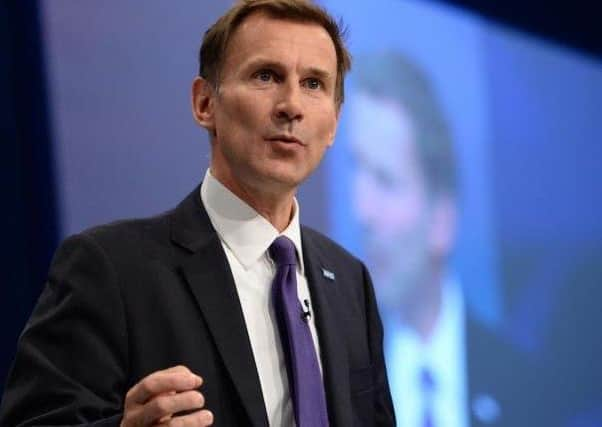Jayne Dowle: A fatal remedy. Closure of our chemists could put lives at risk


The Health Secretary is spearheading a move to withdraw the £170m Government subsidy allocated to pharmacies in the current financial year. This means that around 3,000 pharmacies could be “thinned out”, leaving the elderly, the vulnerable and young families at risk. Rural areas in particular will be hit especially hard.
We saw this with post offices a decade ago. The decimation of local services was bad enough then; the shutters came down on hundreds of outlets, including many in our region. People who campaigned to stop those closures described their branch as “a lifeline”. They had a point. With chemists, this really is true.
Advertisement
Hide AdAdvertisement
Hide AdThe biggest irony is that we have been actively encouraged by the Government – until now – to go to the pharmacist for advice on health and medical matters which don’t require emergency treatment.
I’ve done it myself often enough. The lady who works in the chemist nearest to my home is a fount of knowledge on treatment for coughs and colds, and she always offers a sympathetic shoulder to sniff on.
If up to a quarter of chemists do close, where does the Government think that people will go for this level of advice? Our GP surgeries are over-burdened enough. It’s now pretty much standard practice for an adult to wait a fortnight for an appointment for a non life threatening matter.
Our A&E departments are stretched – literally – to bursting point, with sick and injured people lined up on trollies in corridors awaiting triage.
Advertisement
Hide AdAdvertisement
Hide AdThe Government-backed NHS helpline can offer reassurance and information, but I don’t know anyone who would trust it with a sick child burning up with a fever in their arms.
Jeremy Hunt says he wants to save money. Doesn’t he realise that all those people who currently go to the chemist for advice on minor ailments will end up putting even more pressure on other aspects of the NHS? It just doesn’t add up.
As Robert Darracott, chief executive of the professional organisation Pharmacy Voice, says: “To threaten a network of primary care providers across England in neighbourhoods close to where people live, work and shop, that are there providing an outlet to people and their immediate health concerns, seems to make little sense.”
He has organised a petition backed by more than a million signatories, including his members, patients and a cross-party group of MPs led by Barnsley MP Michael Dugher. The arrogance of those in Westminster who think they know what’s best for the health of the country is such that I doubt this petition will make any difference.
Advertisement
Hide AdAdvertisement
Hide AdLet’s not forget that pharmacies also dispense medicines prescribed by GPs. Part of the Government’s plans appear to be centred on clustering pharmacies within GP surgeries, rather than out in towns and villages.
I can see some sense in this, but I know from experience that it doesn’t always work. My father, for example, has to take a plethora of medicines for health issues including heart failure and sight problems. He has to visit his GP pretty much every week, so is well-versed in the pressure on the surgery.
For him, the biggest pressure of all is on the surgery pharmacy, which always has a stressful queue, and almost always runs out of a vital item by the end of the morning. This means dad has to go back and fetch it, which is not always an option when he is having a bad day.
That’s why he now uses the pharmacy on the end of his road where they greet him by name and will do their utmost to ensure that he never runs out of anything he needs to stay as well as he possibly can.
Advertisement
Hide AdAdvertisement
Hide AdDespite his health problems, dad is lucky. He has a choice. And he has a car. What about the families isolated in rural areas or on remote housing estates, who have to rely on public transport? If there is no chemist within walking distance, it could be a bus journey of hours or an expensive taxi fare, just to collect medicines for that sick child burning up with fever. Do those who sit in Westminster dreaming up these cost-cutting ideas really think about of the potential impact of their plans?
Dr Keith Ridge, chief pharmaceutical officer for NHS England, argues that 40 per cent of pharmacies are in clusters of three or more within 10 minutes of each other. These will obviously be first on the target list. Whose 10 minutes though? The 10 minutes of a person with a reliable car, or the funds to pay a taxi, or the 10 minutes of a person with no means of transport?
This is what I mean. We can’t allow those who have no understanding of what real life is like to go ahead and make decisions which could put our own lives in danger.